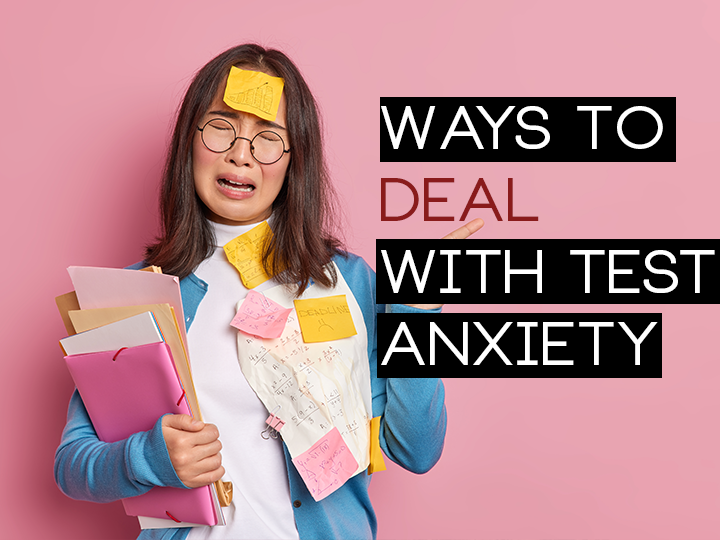
Test anxiety is a common experience for many students, and it can have a significant impact on academic performance. However, there are ways to cope with test anxiety and improve your ability to perform well on exams.
One effective strategy is to prepare thoroughly for the test. This includes reviewing material, creating a study schedule, and breaking down the material into manageable chunks. Additionally, it is important to get a good night's sleep and eat well before the test.
Another strategy is to practice relaxation techniques, such as deep breathing, meditation, or yoga. These techniques can help reduce feelings of stress and anxiety, and allow you to focus on the task at hand.
Another technique is to use positive self-talk. This is the practice of talking to yourself in a positive and encouraging manner. Instead of focusing on negative thoughts and worries, you can remind yourself of your abilities and past successes.
Lastly, it may be helpful to talk to someone about your test anxiety. This can be a friend, family member, or counselor. They can provide support and guidance, and help you develop a plan to manage your anxiety.
In summary, there are several ways to cope with test anxiety, including preparing thoroughly, practicing relaxation techniques, using positive self-talk, and seeking support. Remember, everyone experiences anxiety differently and what works for one person may not work for another. It may take some experimentation to find the right strategies for you, but with patience and perseverance, you can improve your ability to perform well on exams.
Ways To Deal With Test Anxiety:
Preparation: One of the most effective ways to cope with exam anxiety is to prepare thoroughly. This includes reviewing material, creating a study schedule, and breaking down the material into manageable chunks. By being well-prepared, you will have a greater sense of control and confidence in your ability to perform well on the exam.
Relaxation techniques: Another strategy to cope with exam anxiety is to practice relaxation techniques, such as deep breathing, meditation, or yoga. These techniques can help reduce feelings of stress and anxiety, and allow you to focus on the task at hand.
Positive self-talk: Another technique to cope with exam anxiety is to use positive self-talk. This is the practice of talking to yourself in a positive and encouraging manner. Instead of focusing on negative thoughts and worries, you can remind yourself of your abilities and past successes.
Seek Support: It may be helpful to talk to someone about your exam anxiety. This can be a friend, family member, or counselor. They can provide support and guidance, and help you develop a plan to manage your anxiety.
Time management: Another way to cope with exam anxiety is to manage your time effectively. This means creating a study schedule and sticking to it, giving yourself enough time to review material, and avoiding procrastination.
Mindfulness: Mindfulness is the practice of being present in the moment and being aware of your thoughts, feelings, and surroundings. This can help you to focus on the task at hand and avoid getting caught up in negative thoughts or worries.
Physical activities: Another way to cope with exam anxiety is to engage in physical activities such as exercise, sports or any physical activity that you enjoy. Physical activity can help reduce stress and anxiety and improve your overall well-being.
Re-framing: Re-framing is the process of changing the way you think about a situation. Instead of thinking about an exam as a threat, try to think of it as an opportunity to showcase your abilities and knowledge.
In conclusion, coping with exam anxiety can be challenging, but with the right strategies and mindset, you can improve your ability to perform well on exams. Remember, everyone experiences anxiety differently and what works for one person may not work for another. It may take some experimentation to find the right strategies for you, but with patience and perseverance, you can overcome your anxiety and succeed in your exams.